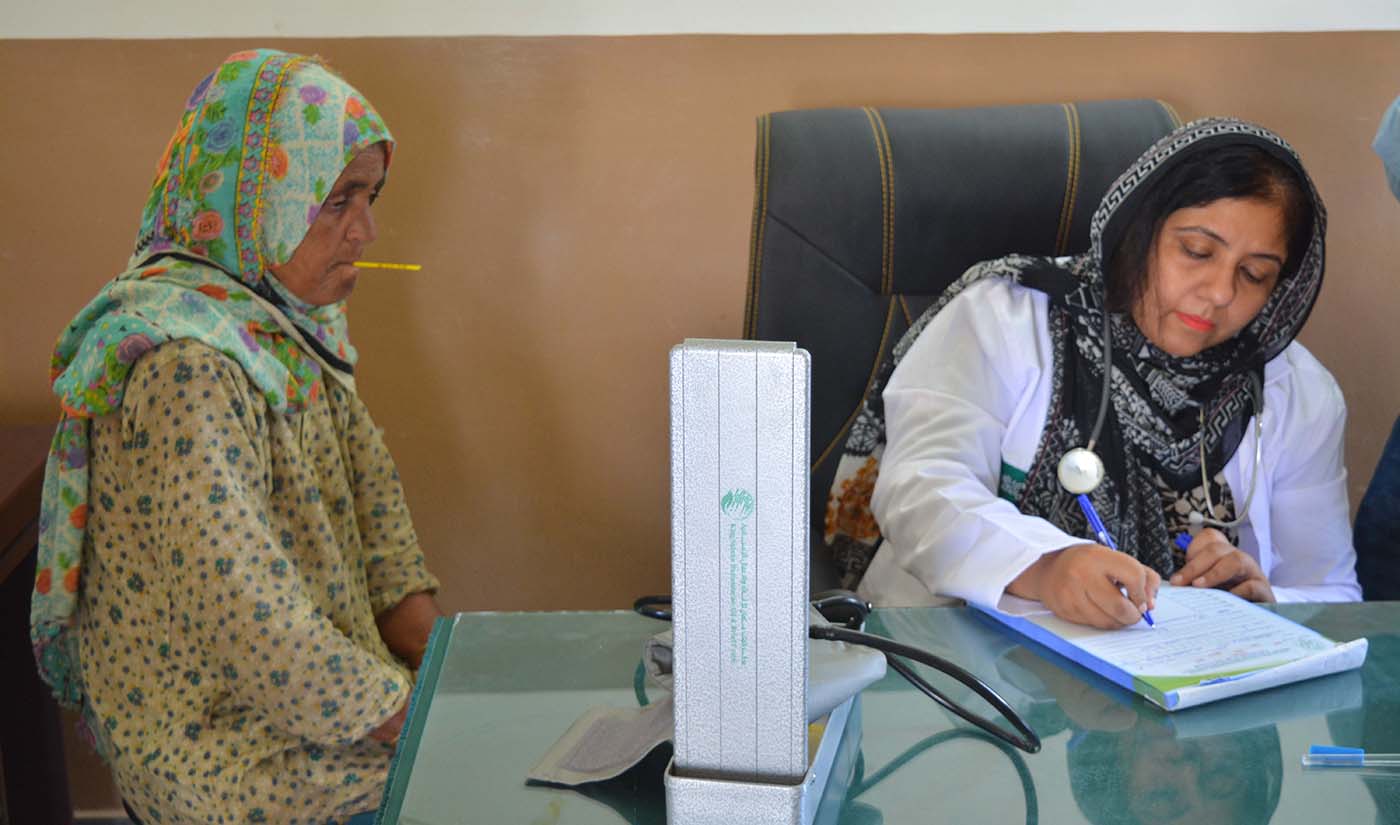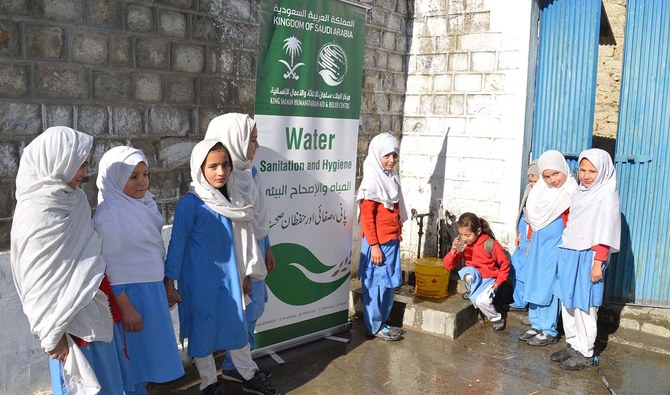ISLAMABAD: Pakistan is the fifth-largest recipient of aid from the Saudi-based international aid agency, the King Salman Humanitarian Aid and Relief Center (KSRelief), and has received $117.6 million in aid since 2005 according to a report published by the organization.
With one of the largest humanitarian aid budgets in the world, KSRelief has been working in 44 countries, and after Yemen, Palestine, Syria and Somalia, Pakistan is the biggest beneficiary of the organization’s aid money and humanitarian operations.
KSRelief has completed 84 projects in Pakistan in the fields of education, health care, water, sanitation, hygiene, emergency camps and community support that have cost roughly $100 million in the last 14 years, the report said. It has also completed 22 food security projects in the country during the same period.
“We have joined hands together with our Pakistani brothers by working with them in times of need and will keep on doing so in the future as well,” Dr. Khalid Mohammed Alothmani, Director for KSRelief Pakistan, told Arab News in an interview last week.
The organization has spent nearly $68 million solely on emergency disaster relief efforts in Pakistan, mainly in areas devastated by natural calamities.
But apart from relief efforts, KSRelief’s aid to Pakistan has also focused on education and school infrastructure in mostly rural establishments across the country, at a cost of $7.8 million and benefitting an estimated 13,000 students.
“KSRelief gave us furniture for 700 students,” said Ghulam Yaseen, principal of Government Middle School Village Gujji in Layyah district of southern Punjab, while talking to Arab News via telephone.
“They constructed a new building, and none of the schools in our district has such infrastructure. Before the completion of this project...our students used to sit under the sky,” he said.

In this June 26, 2019 picture, a doctor takes notes with a patient. KSRelief has built several healthcare facilities across Pakistan, especially in rural areas. (Photo Courtesy: KSRelief)
Aid has also been given for health care, water, sanitation and hygiene improvement- projects estimated to benefit as many as 900,000 people, according to the KSRelief report.
“Our basic health unit lacked important medical equipment and beds,” said Dr. Rabia Bibi who manages a health care facility in a remote village of Dera Ghazi Khan in Pakistan’s eastern Punjab province.
“In 2017, KSRelief gave us new equipment, including ultrasound, X-ray and ECG machines...12 beds for patients, operation lights, oxygen cylinders, and other necessary equipment.”
“We were only catering to a few patients due to a lack of facilities,” Bibi said, but added that only a few serious cases were now referred to the bigger city hospitals and most were treated in-house.
Saudi Arabia and Pakistan have enjoyed historically strong ties and Riyadh has played a vital role in recent years in rebuilding and relief efforts inside Pakistan after natural calamities.
In the aftermath of the 2005 earthquake in northern Pakistan and Kashmir, where an estimated 90,000 people lost their lives and 3.5 million were rendered homeless, the Saudi government provided a grant of $10 million.
After the 2010-11 floods, where a reported 20 million people were directly affected, the government gave a $170 million grant.

















